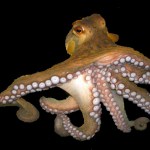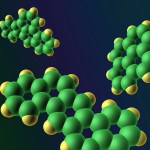cognition
In the old days, the words "art" and "science" did not mean the same thing they mean today, at least in academia. Today, unfortunately, they have almost come to mean opposites. You can't be doing both at once. Or, at least, that's what people who haven't thought about it much may think.
Art can be used to engage people in science, and science can provide a subject for art, and in various ways, the twain shall meet.
But in Reductionism in Art and Brain Science: Bridging the Two Cultures, Erik Kandel does something both more extreme and more specific than simply joining the two endeavors.…
If you can't make it to the Tishman Auditorium in New York tonight to catch the highly anticipated program The Limits of Understanding, we've got you covered. The event will be streaming live, but we'll also be there to cover it, so follow along with the commentary alongside the video stream, and feel free to join in! The event starts at 8:00 EST. Moderator Sir Paul Nurse, a Nobel Laureate and President of Rockefeller University, will join mathematician Gregory Chaitin, philosopher Rebecca Newberger Goldstein, astrophysicist Mario Livio, and A.I. pioneer Marvin Minsky in a discussion about…
Sam McDougle joins us from re:COGNITION at The Beautiful Brain. Sam splits this time between behavioral neuroscience research at the University of Pennsylvania, playing fiddle in an Appalachian string-band, and drumming in an indie rock trio.
In my recent career as an undergraduate, I noticed a curious phenomenon–around my junior year, dorm rooms across the campus were suddenly spending Friday nights captivated by the wonders of the natural world, led along by David Attenborough’s poised intonations. BBC’s Planet Earth box set would soon be as ubiquitous in 18-24 year olds’ DVD collections…
Maybe you think you already know enough about music. After all, we've been experiencing and describing it for ages. Beethoven called music the "mediator between the spiritual and the sensual life." Others know it as the "universal language" or the "voice of angels." T.S. Eliot said "you are the music while the music lasts."
But many of these sentiments only heighten the musical mysteries legendary "wired" composer Tod Machover has spent his career trying to answer--Questions like: How can music help order emerge from the mind's chaos or conjure thoughts, emotions and memories? Can we learn…
We're delighted to have Carl Zimmer guest blog for us. Carl writes about science regularly for the New York Times and magazines such as Discover, where he is a contributing editor and columnist. He is the author of seven books, the most recent of which is The Tangled Bank: An Introduction To Evolution.
What is it that makes us humans unique? Is it our capacity to learn language? To cooperate on a vast scale and build civilizations? To make fun of celebrities? To answer all those questions (except maybe the last one), scientists don't limit their research to our own species. We may be special…
Say you're visiting Los Angeles and you have a sudden craving for Chinese food. Since you are only visiting, you might not be aware that nothing is open past, like, 10pm (not even coffee houses), but you get in your rental car and go driving around in search of your Chinese feast anyway. You try hitting up Panda Express, but no such luck. Of course they're closed. You try the neighborhood Chinese restaurant: closed as well. You get back in the car, and think to yourself "maybe the OTHER Panda Express will be open", but alas, it is not. You are ready to return to the hotel and just go to sleep…
This seems to have become unofficial volcano week, here at ScienceBlogs. If you haven't been following the coverage of the Eyjafjallajökull eruption at Erik Klemetti's Eruptions blog, you should consider doing so. Also, Dr. Isis has a post on how the eruption has fouled up all nuclear imaging plans at her place of research, and Ethan explains how volcanic lightening works.
Our benevolent overlords have further commented: "Eyjafjallajökull's ill temper has been an unexpected object lesson in the complexity and interconnectedness of our environment, technology, and social networks." To that I…
Jonah Lehrer's story on "Depression's Upside" has created quite a kerfuffle. The idea he explores â that depression creates an analytic, ruminative focus that generates useful insight â sits badly with quite a few people. It's not a brand-new idea, by any means; as Jonah notes, it goes back at least to Aristotle. But Jonah (who â disclosure department â is a friend; plus I write for the Times Magazine, where the piece was published) has stirred the pot with an update drawing from (among other things) a very long review paper published last year by psychiatric researchers Paul Andrews and…
Artificial Intelligence as a term implies that there is a "natural" intelligence we wish to replicate in the lab and then engineer in any one of several practical contexts. There is nothing in the term that implies that "intelligence" be human, but the implication is clear that such a thing as "intelligence" exists and that we have some clue as to what it is.
But it might not, and we don't.
Read the rest here...
SYNAESTHESIA is a neurological condition in which there is a merging of the senses, so that activity in one sensory modality elicits sensations in another. Although first described by Francis Galton in the 1880s, little was known about this condition until recently. A rennaissance in synaesthesia research began about a decade ago; since then, three previously unrecognized forms of the condition have been described, and hypotheses for how it arises have been put forward.
Two new studies now provide some insight into time-space synaesthesia, the least researched of all the forms of this…
I am pretty much on record that I would not pay for anything online (to be precise, to pay for content - I certainly use the Web for shopping). But with some caveats. I have been known to hit a PayPal button of people who provide content and information I find valuable. And I would presumably pay, though not being happy about it, if the information behind the pay wall is a) unique (i.e., not found anywhere else by any other means) and b) indispensable for my work (i.e., I would feel handicapped without it).
But I am not subscribed to, or paying for, anything right now and haven't been in…
The nice thing about writing features is that they're often solicited miles in advance so I can write something, totally forget about it and then be surprised when I open my weekly copy of New Scientist to find my name in a byline.
This week's issue has a feature by me entitled "Beyond east and west: How the brain unites us all" (I like the title; I didn't write it).
Following the piece I wrote on FOXP2, this is another of those "the media says this, but here's what's really going on" pieces. It's an exploration of the supposed cultural differences between East Asians and Westerners in the…
This week's Bloggingheads.tv episode features philosopher Joshua Knobe and psychologist Elizabeth Spelke discussing the cognitive abilities of infants.
Here are some more clips of the "diavlog" in addition to the one you can view on the ScienceBlogs home page.
What do you think of this week's Bloggingheads feature?
tags: ravens, Bernd Heinrich, genius bird, National Geographic, streaming video
This interesting National Geographic video shows how Bernd Heinrich designed an experiment to test the intelligence of ravens [2:07].
tags: Irene Pepperberg, Alex, Alex the African grey parrot, talking parrot, cognition, behavior, streaming video
As you know, I went to Irene Pepperberg's reading last night from her new book about her friend and colleague, Alex the African grey parrot. This is an interesting video interview with Pepperberg about Alex, shortly after he died [3:29]
tags: Irene Pepperberg, Alex, Alex the African grey parrot, talking parrot, cognition, behavior, streaming video
Tonight, I will attend Irene Pepperberg's reading where she will read from her new book about her friend and colleague, Alex the African grey parrot. Below is an interesting video showing some of what Alex was capable of doing, and it also provides a small glimpse into the relationship between Alex and Irene [2:06]
tags: Irene Pepperberg, cognition, learning, parrots, birds, Alex Foundation
Cognitive scientist, Irene Pepperberg and her parrots, Griffin, Arthur (Wart) and Alex.
Image: Mike Lovett, Brandeis University.
I just wanted to let you know that Irene Pepperberg has several speaking engagements to promote her new book, Alex & Me: How a Scientist and a Parrot Discovered a Hidden World of Animal Intelligence -- and Formed a Deep Bond in the Process (scheduled release date: 28 October 2008). As you might remember, six months ago, I was given the opportunity to review an advance reading copy of…
tags: cognition, behavior, self-recognition, self awareness, tool use, memory, brain architecture, birds, European magpie, Pica pica, researchblogging.org
Figure 1. European magpie, Pica pica, with yellow mark [larger view].
DOI: 10.1371/journal.pbio.0060202.
Birds have been disparaged publicly as "bird brains" for so long that most people have lost the ability to view them as intelligent and sentient beings. However, a group of researchers in Germany have conducted a series of studies with several captive European magpies, Pica pica, that challenge the average person's view of birds and…
Thanks to John Wilkins, I want to point you to an excellent review on the current state of research (both scientific and philosophical) in Animal Cognition.
I had no time to read this in detail and write a really decent overview here, perhaps I will do it later, but for now, here are the links and key excerpts from a pair of exciting new papers in PLoS Biology and PLoS ONE, which describe the patterns of expression of a second type of cryptochrome gene in Monarch butterflies.
This cryptochrome (Cry) is more similar to the vertebrate Cry than the insect Cry, also present in this butterfly. The temporal and spatial patterns of expression of the two types of Cry suggest that they may be involved in the transfer of time-information from the…


